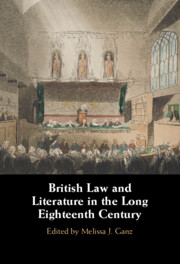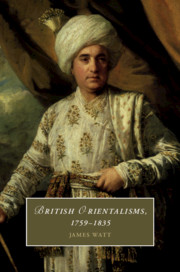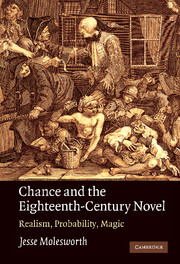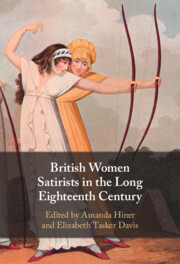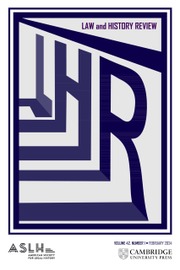British Law and Literature in the Long Eighteenth Century
The law underwent significant changes in eighteenth-century Britain as jurists and legislators adapted doctrines to fit the needs of an increasingly commercial, industrial, and imperial society. This volume reveals how legal developments of the period shaped and were shaped by imaginative writing. Reading canonical and lesserknown texts from the Restoration to the Romantic era, the chapters explore literary engagements with libel law, plague law, marriage law, naturalization law, the poor laws, the law of slavery and abolition, and the practice of common-law decision-making. The volume also considers the language and form of legal treatises and judicial decisions, as well as recent appropriations of the period's literature and legal norms by the Christian right. Through these varied case studies, the volume deepens our knowledge of law and literature's mutual entanglements in the long eighteenth century while shedding light on legal and ethical questions that remain of concern to this day.
- Traces the emergence and development of law and literature as an interdisciplinary field, highlighting the contributions of eighteenth-century studies to the law-and-literature enterprise
- Reveals the role of imaginative writing in British legal debates of the long eighteenth century as well as the centrality of narrative and rhetoric to the period's legal discourse
- Sheds light on questions concerning objectivity and interpretation, judgment and justice, freedom and equality, property and personhood, and slavery and empire, while offering fresh readings of a range of genres and texts
Reviews & endorsements
‘A fascinating collection of essays on the relation of law, history, and literature during the ‘long' eighteenth-century, taking the reader from the days of Defoe to the dawning of the Victorians. A welcome contribution to the field of literary jurisprudence.' Ian Ward, Professor of Law, Newcastle University
‘This impressive and authoritative collection of essays pushes beyond the traditional disciplinary boundaries of law and literature. These essays establish the cultural significance of law and literature's mutual entanglements in the long eighteenth century, and their continuing relevance to contemporary legal, political, and cultural debates. Provocative and timely.' Susan Sage Heinzelman, Associate Professor Emerita of English and Gender Studies
Product details
August 2025Hardback
9781009224130
302 pages
229 × 152 mm
Not yet published - available from August 2025
Table of Contents
- Introduction Melissa J. Ganz
- 1. 'Every common reader': satire, libel law, and the emergence of objective interpretive procedures, ca. 1670–1730 Andrew Benjamin Bricker
- 2. Perpendicular publics: contesting infrastructure at early eighteenth-century rail crossings David Alff
- 3. Ambivalence, survival, and law in Defoe's journal of the plague year Kathryn D. Temple
- 4. The court of justice and the court of conscience: legal ethics in Tom Jones Suzanna Geiser
- 5. 'A higher tribunal': equity, law, and the family in sir Charles Grandison Melissa J. Ganz
- 6. Mansfield, burrow, and the reformulation of the legal decision Simon Stern
- 7. Novel subjects: naturalization in Richardson and Edgeworth Stephanie DeGooyer
- 8. Common law and cultural difference in Scott's ivanhoe and chronicles of the canongate Anne Frey
- 9. The legal character of paupers in early nineteenth-century England Mark Schoenfield
- 10. Liberty in 'Parenthesis': the case of the slave, grace (1827) and antislavery satire in the history of Mary Prince (1831) Sarah Winter
- 11. Yearning for restriction in the romantic novel: propagating conservative legal norms in right-wing literary podcasts and religion-centered editions of works by Jane Austen and Mary Shelley Nicole Mansfield Wright.

